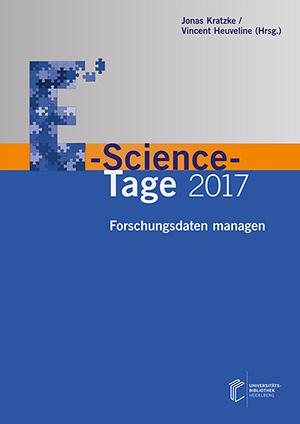Zitationsvorschlag
Lizenz (Kapitel)

Dieses Werk steht unter der Lizenz Creative Commons Namensnennung - Weitergabe unter gleichen Bedingungen 4.0 International.
Veröffentlicht
RADAR: A Research Data Management Repository for Long Tail Data
Abstract The transparency and reproducibility of scientific results are increasingly based on digital data. In
compliance with good scientific practice, data needs to be published, accessible, and re-usable. RADAR is a
generic infrastructure providing archival and publication services for research data. RADAR focuses on the
"long tail of science", which often lacks sufficient research data infrastructure. It offers two service levels: data archival (“dark archive” with variable retention periods and user-defined access rights) and data archival with publication (guaranteed retention period of 25+ years, DOI assignment, and flexible licensing options).
Users can upload, edit, structure and describe (collaborative) data in an organisational workspace. Administrators and curators can manage access and editorial rights before the data enters the preservation and optional publication level. Data consumers may search, access, download and retrieve usage statistics on the data via the RADAR portal. For data consumers, findability of research data is of utmost importance. The metadata of published datasets can be harvested via a local OAI provider or the DataCite Metadata Store. Additionally, RADAR provides an application programming interface (API) for easy integration of RADAR functionality with existing systems and workflows at the user’s side.
RADAR relies on two academic data centres under German jurisdiction to provide its services. The novel
two-stage service and business model provides one-off payments and institutional subscription services. RADAR is intended to become an integral part of the international information infrastructure which also allows the integration of third-party services. RADAR was designed by a research consortium of academic institutions for the academic community. Through cooperation with researchers, data centres, scientific societies as well as publishers, RADAR ensures that the resulting infrastructure is designed to meet the requirements of the academic community.
Keywords RADAR, research data repository; repository; preservation; information infrastructure; research data management; data archiving; data publication.



